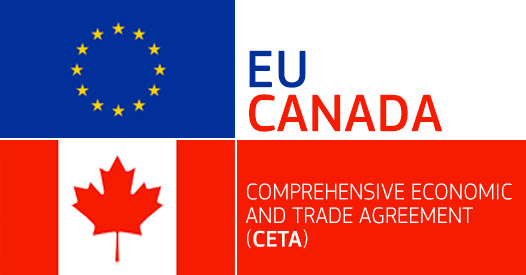CETA Comes Into Effect, Facilitating Easier Entry to Canada for Business Visitors
Free trade between Canada and the European Union (EU) starts today, September 21, and with it comes increased opportunities for businesses, their key personnel, services suppliers, independent professionals, and short-term business visitors to work in Canada.
The Comprehensive Economic and Trade Agreement (CETA) — a free trade agreement between Canada, the EU and its member states — will eliminate 98 percent of the tariffs between Canada and the EU. The “provisional application” of CETA came into effect on September 21, though many member states are yet to ratify the agreement. The government of Canada estimates bilateral trade will increase by 20 per cent as a result of CETA.
With regard to immigration matters, CETA facilitates entry for certain business persons who are citizens of Canada and EU member states by removing the requirement for a Labour Market Impact Assessment (LMIA) to be obtained before that person can legally perform work in Canada. The LMIA process ensures that companies in Canada may only hire internationally if it is determined that no Canadian citizens or permanent residents were ready and able to perform the role. The LMIA process also includes advertising requirements and processing times.
Consequently, being exempt from the requirement to obtain a LMIA can make the process much easier.
Chapter 10 of CETA covers the three following categories of visitors for business purposes:
- Key personnel: including intra-corporate (company) transferees, investors, and business visitors for investment purposes;
- Contractual service suppliers and independent professionals; and
- Short-term business visitors.
New LMIA exemption codes have been created to better capture data about business visitors from EU member states. These exemptions may be granted under the International Mobility Program (IMP), an umbrella program through which the government seeks broader economic, cultural or other competitive advantages for Canada.
Applicants may be processed at a Canadian port of entry, or, should they meet the conditions set out within section 199 of the Immigration and Refugee Protection Regulations (IRPR), they may apply from within Canada or at Canadian missions abroad.
Business visitors
The maximum length of stay for short-term business visitors and business visitors for investment purposes is 90 days in any six-month period, unless otherwise eligible for other duration.
The list of eligible activities for business visitors is different in CETA than under the North American Free Trade Agreement (NAFTA). For example, it includes categories for meetings and consultations, as well as training seminars. In addition, the description of after-sales services also includes after-lease services.
Intra-Company
CETA sets forth conditions whereby persons may transfer to work in Canada within the same company. The intra-company transferee provisions of CETA, described under the key personnel category, are similar to the already existing Intra-Company transfer program, with the addition of graduate trainees. Senior personnel and specialists may also to Canada without a LMIA.
Under CETA, all intra-company transferees must:
- have been employed by an enterprise of, or have been partners in an enterprise of, an EU member state for at least one year; and
- be temporarily transferred to an enterprise (that may be a subsidiary, branch, or head company of the enterprise) in Canada.
Graduate trainee applicants must also:
- possess a university degree; and
- be temporarily transferred to an enterprise in Canada for career development purposes or to obtain training in business techniques or methods.
Investors
Under the agreement, eligible investors may stay in Canada for one year, with possible extensions at the officer’s discretion if the applicant is able to provide documentation that satisfies the processing officer of their need to have their stay extended.
The investor provisions of CETA apply to applicants who:
- will establish, develop, or administer the operation of an investment in a capacity that is supervisory or executive;
- are the investor; and
- are employed by an enterprise that has committed or is in the process of committing a substantial amount of capital.
Contractual service suppliers and independent professionals
Under CETA, applicants in both categories may stay in Canada for a cumulative period of no more than 12 months in any 24-month period or for the duration of the contract, whichever is less.
Applicants in both categories of professionals must be:
- citizens of a European Union member state;
- engaged in the temporary supply of a service for a period not exceeding 12 months (if longer than 12 months, the commitments in CETA will only apply for the initial 12 months of the contract); and
- contracted to provide a service in accordance with the Annex 10-E concordance table.
They must also possess:
- a university degree or a qualification demonstrating knowledge of an equivalent level; and
- professional qualifications if required to practice an activity pursuant to the laws or requirements in the province or territory where the service is supplied.
Some categories of engineering and scientific technologists are eligible to enter Canada as professionals without a university degree.

